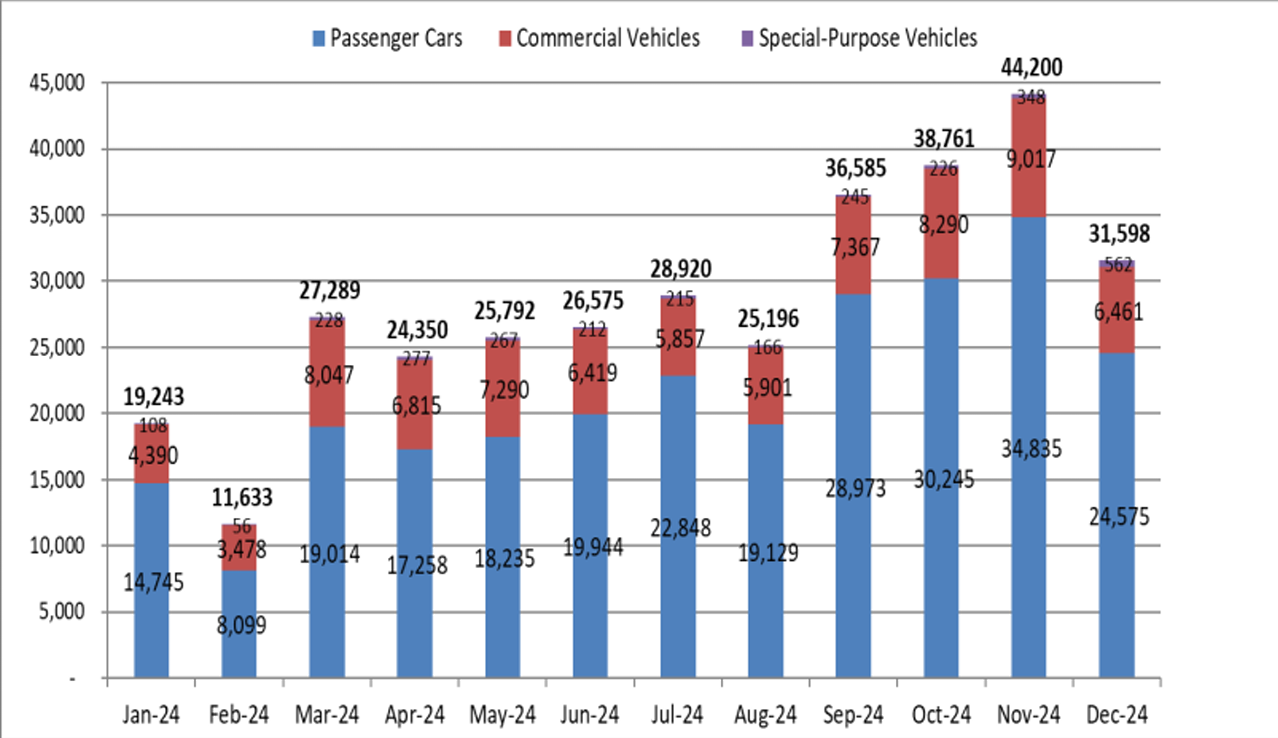Despite numerous difficulties, Vietnam's auto market closed 2024 with significant growth, supported by government incentives, dealership promotions, and the strategic product planning of VinFast.
According to the Vietnam Automobile Manufacturers Association (VAMA), 31,598 vehicles were sold in December 2024. This marked a 29% drop from November and an 18% decline compared to December 2023. These numbers were expected, as consumer demand surged in September, October, and November, fueled by reduced registration fees for domestically produced and assembled cars.
Even without these government incentives, December's sales still outperformed most other months in 2024. Notably, domestically assembled vehicle sales reached 12,862 units in December, down 49% from November, while imported vehicle sales showed a slight 2% decline, totaling 18,736 units.
A year of recovery and growth

Despite a challenging December, total market sales for 2024 reached 340,142 units, up 12.6% compared to 2023. This reflects the persistent efforts of VAMA members to navigate difficulties and boost consumer confidence.
Leading the market, Toyota sold over 68,000 vehicles in 2024, a significant increase from 59,207 in 2023. Mitsubishi saw robust growth, selling 41,198 units, a 33.4% increase. Honda recorded nearly 19% growth with 28,267 vehicles sold, while Ford reached an all-time high with 42,175 vehicles, up 10% from the previous year.
TC Motor, the distributor of Hyundai vehicles in Vietnam and not a VAMA member, reported a slight dip of 0.4%, selling 67,168 units. However, VinFast, the domestic electric vehicle brand, achieved unprecedented success, delivering over 87,000 vehicles in 2024. The VinFast VF 3 and VF 5 models accounted for a substantial portion of this success, with combined sales exceeding 57,000 units.
In total, Vietnam’s auto market reached an estimated capacity of 500,000 vehicles in 2024, close to the record 509,141 units sold in 2022.
A growing preference for eco-friendly vehicles
Vietnam’s auto market in 2024 also witnessed a growing trend toward electrification and environmentally friendly vehicles. Hybrid cars, mainly from Japanese brands like Toyota, Honda, and Suzuki, accounted for nearly 10,000 sales, according to VAMA.
In the fully electric segment, VinFast continued to dominate. Meanwhile, Chinese brands like BYD, GAC Aion, Wuling, and MG entered the market, offering customers more diverse and affordable options.
The first half of 2024 was marked by challenges, but the year-end results demonstrated the resilience and adaptability of Vietnam’s auto manufacturers.
Industry experts predict that the market will maintain stable growth in 2025, though significant breakthroughs may be limited.
Persistent challenges remain, particularly if manufacturers are unable to sustain incentives and promotions to stimulate demand.
Ngo Minh